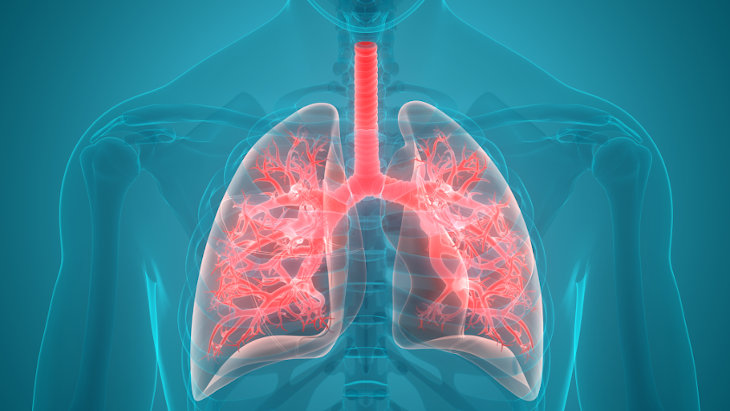 Iran’s Attack on Israel
Iran’s Attack on Israel


5 min read
Several incredibly complex internal mechanisms silently watch over our bodies every second of our lives.
It's amazing how several internal mechanisms silently watch over our bodies every second of our lives. These mechanisms automatically accommodate whatever we are doing. On close inspection of these mind-boggling complex processes, one can see evidence of design, purpose and foresight.
Take our heartbeat. Heart cells start beating around three weeks in utero. Cells that make heart cells show up even sooner and before them, the pre-pre-heart cells start the process. They all follow biological blueprints (DNA). Circulation is readily evident in every unborn by eight weeks. Lungs are present as well as kidneys, liver and stomach. With a little extra support in the neonatal ICU, a premature baby can nowadays survive after 22 weeks.
Once we are born, the right side of the heart simultaneously pumps “blue” blood to the lungs to extract carbon dioxide and pick up oxygen as the left side pumps “red” blood back out to the body to deliver oxygen and collect carbon dioxide. This muscular organ, which becomes a little larger than a man’s fist, is incredibly durable. It pushes out two to three billion times in a person’s lifetime. It grows in proportion to the person’s growth and it repairs itself on the run. Yet, our lives are very fragile. A four-second pause in the heart beat will send a person crashing to the floor.
If we exercise, our heartbeat quickens in proportion to the work being done and the individual’s conditioning. Imagine how difficult life would be if the heart rate didn’t adjust to demands. More blood is delivered to the body during illness or while exercising and less when we are resting. Blood is shunted to the stomach when we are eating and sent to leg muscles when we are running. All demands are met. Throughout, the brain receives all the blood it needs. Short of death and dying, it is never short-changed.
The heart’s pacemaker is particularly interesting. These specialized cells send electrical signals down the center of the heart every second (on average). If they fail, another pacemaker downstream takes over. And, if that one fails, a somewhat limited third pacemaker takes over. Back-up upon back-up upon backup are not accidents of nature. Redundancy is common. It shows incredible foresight.
We inhale “good” air (oxygen) and exhale “bad” air (carbon dioxide) about a half billion times in a lifetime. Virtually all of this happens automatically. Select cells situated in the brain and along certain arteries keep tabs on the concentrations of carbon dioxide and oxygen; they send messages to the lungs and brain to adjust to speed up, to slow down and/or take in bigger volumes of air. Your lungs know your plan a split second before you start running. These actions not only show foresight and planning, but it also shows purposeful, mechanical engineering.
Could the human species have survived if we had to think about every breath we took? That’s inhaling and exhaling every four to five seconds, every day, all night long. We wouldn’t survive. We wouldn’t be able to sleep. We would also have to constantly self-regulate how fast (or slow) and how deep (or shallow) we need to breathe whenever jogging, arguing, making love, sleeping or fighting an infection. If a person had to think about each breath, there would be no time to think about anything else. Like many other processes within our body breathing is automatic.
We also depend on the intake of water which is about 3.7 liters for men and 2.7 liters for women intake daily. Without fluids, few of us could live beyond four days, especially during hot and/or dry conditions. Specialized cells constantly monitor our hydration and silently tell relevant parts of the body when we must drink. A dry mouth is just one of many signals. Blood pressure falling and light-headedness are others. Again, foresight and planning.
Other mechanisms that keep us alive include hunger. Imagine not knowing when your body needed nourishment. No hunger pangs, no desire? Hormones subconsciously tell our bodies when it’s time to eat and others tell us when to stop. The hungrier we are, the better food tastes. “Bad” food, if it passes the sniff test, causes us to vomit or have diarrhea to get rid of it. The 4-4-4 rules says that we would perish without oxygen for four minutes, water for four days and food for four weeks.
There are silent mechanisms that keep us from becoming anemic or too flush with red blood cells. Others that stand guard in case of infection or bleeding. Complex systems tell us we need to sleep and others tell us when to wake. Our internal or core temperatures are maintained by many internal thermostats.
Each of us are an incredibly-complex biological machine that virtually runs silent. Quadrillions of parts work together, in the right order, at the right time and in the right ways in fractions of a second. Yet, all signals are quiet and under control. They all seem to follow an Engineer’s Plan.
